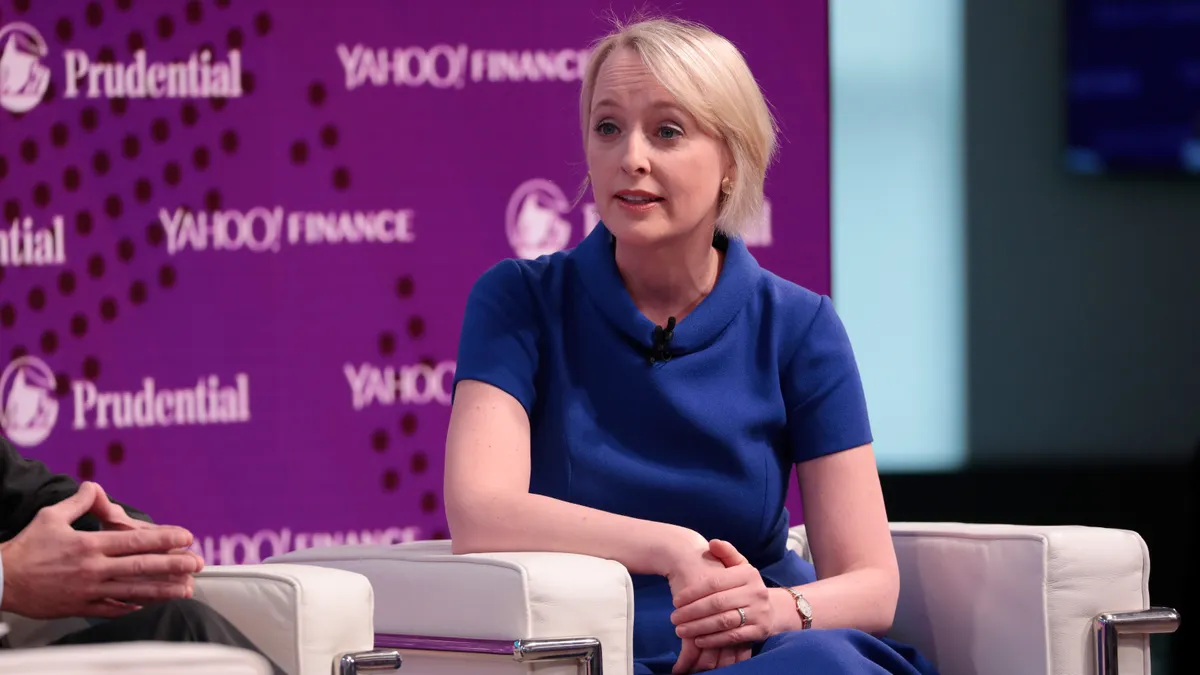For lawyers working remotely, changing jobs can be as easy as mailing one laptop back to the old company and getting another mailed to them from the new company, so the challenge for general counsel is creating an environment in which legal talent doesn’t want to move, a retention specialist says.
“It’s much easier for someone to make the decision to change jobs when they don’t feel connected, so how do you use technology to create connections?” Troutman Pepper Chief Legal Talent Officer Sona Spencer told Legal Dive.
For her firm, the answer was creating Troutman Pepper YOUniversity, a portal centralizing the firm’s resources for sharing best practices, earning professional development credit and evaluating performance so associates have a link between their career aspirations and the means to achieve them.
“It’s an opportunity for us to bring information together in a way that allows someone to say, ‘This is the path I want to take,’” Spencer said. “Having information centralized makes it easy for people to align their feedback, training and development.”
Troutman’s portal is for a law firm with some 1,200 attorneys in 23 offices, but the lessons learned apply equally to an in-house context, Spencer believes.
“Anything like this can be helpful for any [context] where you’re communicating information and connecting with people,” she said. “It’s really just about creating spaces online.”
Career-community connection
Centralizing professional development, including classes for continuing education credit and performance reviews, helps give associates a feeling of connectedness to their company because they can chart a course for career advancement, Spencer said. They can get feedback on where they stand at any one time and in that way feel like their work is propelling them to where they want to be at a given stage in their career.
If an associate gets feedback that their writing is an area needing improvement, for example, they can access tutorials and share how they’ve improved in that area.
“‘Remember what you said in my last review?’” an associate might say to a supervisor, Spencer said as an example. “‘I took some courses from the university and I really feel I’ve improved. What do you think? Is there more you think I should do?’ So, it creates more of a conversation and an opportunity for empowerment to say, ‘I can take control of this.’”
Merger response
The university concept is considered an integral piece of the firm's effort to build a strong corporate culture out of the 2020 merger of its two legacy firms, Troutman Sanders and Pepper Hamilton, that finalized during the pandemic, when in-person work was curtailed.
“You have to get pretty creative” if your goal is to go beyond communication to build a sense of connectedness, Spencer said.
By itself, Zoom isn’t enough, even though it remains the most effective way to replicate in-person contact, she said.
“We knew we had to find a comprehensive way to make people aware of the resources we had and also have a way to connect,” Spencer said, “particularly because we’re a merged firm. There are a number of new services we [have] along with best practices taken from each of the legacy firms to create more opportunities.”
To get the most out of the resources provided through the portal, support staff are working with the firm’s attorneys to help them rethink how they present material so it better matches how people learn online as opposed to in-person.
It mainly takes “simple tweaks,” she said. “It’s not like you have to do everything in a completely different way.”
In one case, two senior partners revised their standard slide presentation to make it more interactive by sprinkling in polling questions and adding a breakout room for a part of the presentation that would benefit from a small-group discussion.
“It was leveraging the technology we have, pushing it through our university, and it created a way for the content to be delivered in an interactive way even though people weren’t together in a room,” Spencer said.
Bottom line, as more legal talent works remotely, retention strategies that worked in an in-person environment must evolve, and Spencer’s firm thinks its professional development portal is more than just a way to share best practices, provide continuing education credit and function as a performance-review mechanism; it’s a tool for creating a sense of community.
“We have to start thinking differently when it comes to retaining talent,” she said. “A lot of what we heard in feedback from associates [as the two firms merged during the pandemic] is that they don’t feel connected. A lot of our response to that has been thinking through how we use technology to create these connections.”



















